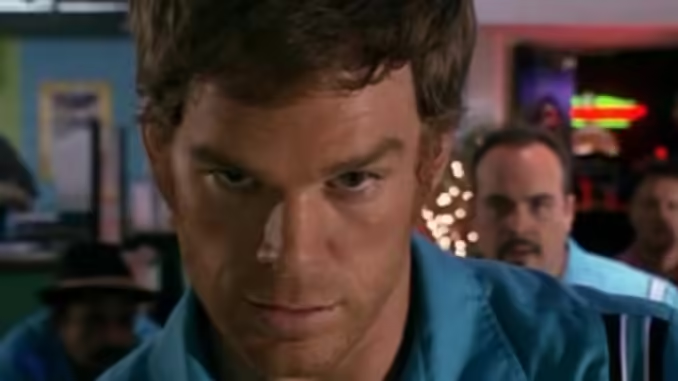
Dexter: Resurrection – Why Dexter Should Be the True Villain of His Own Show…
With the release of *Dexter: New Blood* in 2021, fans were eager to see the return of one of TV’s most iconic anti-heroes, Dexter Morgan. Over eight seasons, viewers watched as Dexter, the likable yet morally complex protagonist, walked the fine line between hero and villain—his violent urges fueled by a deep sense of justice. However, *Dexter: New Blood* resurrected the character in a way that has reignited a key debate: Should Dexter himself be viewed as the true villain of his own story?
### **The Case for Dexter as the Villain**
At its core, *Dexter* is a show about a man who kills criminals. But let’s not forget, Dexter is a vigilante with a strict moral code that justifies his gruesome acts. He targets only those who have escaped justice, which, in his mind, makes him a force for good. However, as the series progresses, it becomes increasingly clear that Dexter’s moral code is not just a shield for his violence, but a self-serving rationalization that allows him to commit heinous acts without fully confronting the consequences.
In *Dexter: New Blood*, the character’s journey takes a darker turn. Dexter, now living under the alias “Jim Lindsay,” is trying to leave his violent past behind him. Yet, when his son Harrison reappears and reveals that he too has inherited Dexter’s dark urges, it forces Dexter to confront his own nature. However, rather than taking responsibility for his actions, Dexter’s instinct is to try to protect Harrison from becoming a killer, even if it means perpetuating the cycle of violence.
This reluctance to accept accountability for his actions suggests that Dexter has always been more of a villain than a hero. He is a man who, despite his best efforts, cannot escape his true nature. His relationships with others, especially his sister Deborah and his romantic partners, are built on lies and manipulation, further complicating his role as a “good guy.”
### **The Hero Complex and the True Villainy**
One of Dexter’s most dangerous traits is his unshakable belief that he is the hero of his own story. This sense of superiority leads him to justify his actions, believing that his victims deserve to die because the justice system has failed them. However, in doing so, Dexter plays god—deciding who lives and who dies based solely on his personal moral code. This sense of entitlement to take life is deeply troubling, especially given that Dexter’s “code” was largely a creation of his own mind, with little to no accountability to anyone else.
Moreover, Dexter’s repeated pattern of choosing self-preservation over the well-being of those closest to him is telling. From his fractured relationships with Rita and his eventual betrayal of his sister, Dexter demonstrates a disregard for others’ feelings and lives, as long as it serves his need to maintain his own moral justification.
### **Why the Show Should Embrace Dexter as the Villain**
If *Dexter* were to truly lean into the idea that Dexter himself is the villain, it would add layers of complexity to the show. Instead of continuing to portray him as a misunderstood anti-hero, the series could explore the psychological unraveling of a man who has spent years justifying murder, only to realize that he is the very monster he once sought to eliminate. This shift would force viewers to reconsider the entire premise of the show: Is Dexter really someone we should root for, or is he just another example of how easy it is to justify violence in the name of justice?
Furthermore, framing Dexter as the villain would create a more compelling narrative in *Dexter: New Blood*, especially with the introduction of Harrison, who must grapple with his own dark impulses. Would Dexter’s legacy of violence continue to haunt Harrison, or would he break the cycle and find a way to escape his father’s shadow?
### **A New Path for Dexter’s Story**
Ultimately, *Dexter*’s legacy should not rest on whether he is a hero or villain, but on how the series challenges our perceptions of morality. If the show fully embraces Dexter as the villain, it could transform into a darker, more introspective exploration of guilt, power, and the dangers of living without consequences. It would push the boundaries of the anti-hero genre, asking difficult questions about whether there is ever redemption for someone who has done so much harm—even with the best of intentions.

As *Dexter: Resurrection* continues to evolve, one thing is clear: The most compelling version of Dexter may be the one who fully confronts his own villainy, rather than continuing to hide behind the illusion of being a flawed but ultimately good man.
Leave a Reply